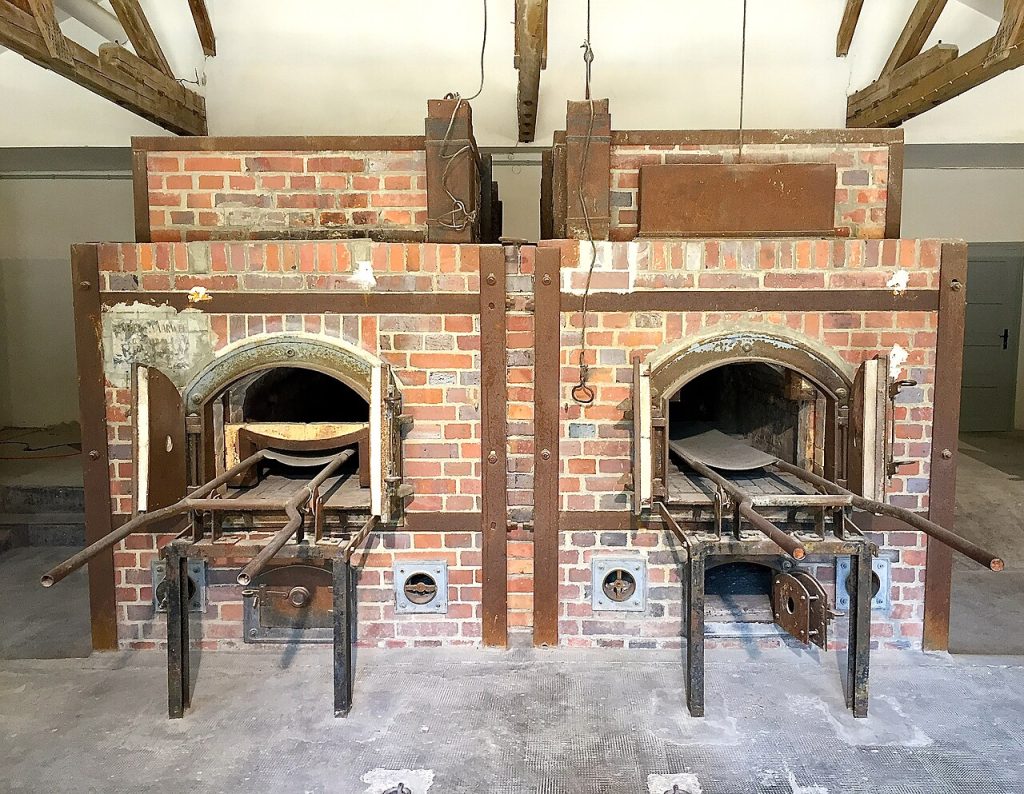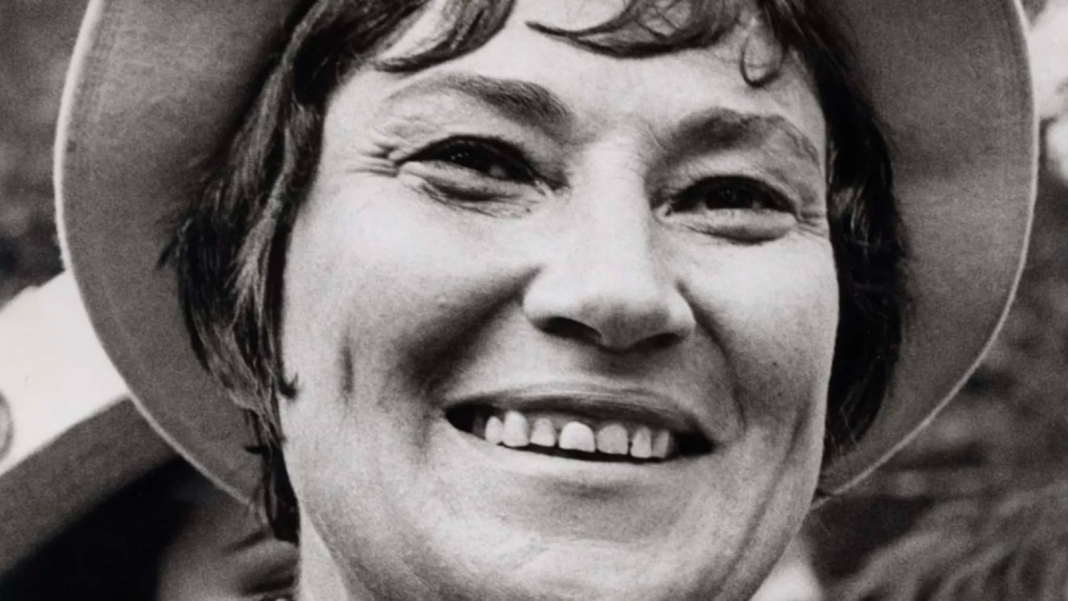The gate of the Dachau Concentration Camp promised “Work Liberates.”
New York, N.Y. When I was in high school, I was an AFS exchange student to Germany. My host family lived in the north of Germany, but during World War II, they had lived in the village of Dachau, where the concentration camp was located. It was hard for me to reconcile how loving and kind my host parents were and that they came from Dachau, a cog in the wheel of the machine that exterminated six million people.

The history of the Holocaust and World War II has always been a significant part of my understanding of humanity and morality. My personal connection to these events deepened when I had the opportunity to visit the concentration camp at Dachau with my host brother. I was excited yet apprehensive to visit this haunted and hallowed ground. My father, when he was 18, was a soldier under General Patton. They came across the English Channel and France, arriving in Germany where they liberated the camp.
My father spoke to me about the emaciated bodies he witnessed there. This was a memory that haunted him his entire life. As we walked through the camp, bearing witness to the death ovens, an American tourist asked me to take her picture in front of the gas chamber. I politely responded in German that I didn’t speak English and moved on. The request felt deeply inappropriate, underscoring the somber and sacred nature of the site.
The village of Dachau is somewhat distant from where the concentration camp was located. My host parents told me that there were strange trains that moved through the village at night, but they said the villagers were afraid to get involved. This aspect of the Holocaust—ordinary people living near sites of extraordinary atrocity, sometimes unaware, sometimes complicit—raises complex questions about human nature, morality, and responsibility. People see what they want to see, and know what they want to know. Is this complicity and evil?
Witnessing the horrors of Dachau with my German host brother, who is no more responsible for the atrocity than I was for the liberation, cemented my nascent opposition to evil. It made me more firmly believe in good and evil, having witnessed the epitome of evil. This experience profoundly impacted my worldview and my sense of moral duty.
Later in life, when I formed Orphans International and the J. Luce Foundation, these organizations were inspired by my father’s interest in young global leadership and my own commitment to humanitarianism. The watershed memory of my trip to Dachau at the age of 18 stands out as a pivotal moment that shaped my dedication to making a positive impact in the world. Seeing the remnants of the Holocaust firsthand, and understanding the immense suffering that occurred there, reinforced my belief in the importance of compassion, social justice, and action.
I hope that whatever contribution I make in the world is better than no contribution at all.
And I believe that my motivation for caring about humanity comes from having witnessed Dachau as a teenager. The memory of those who suffered and perished there is a constant reminder of the potential for both evil and goodness in humanity. It inspires me to strive for a world where such atrocities are not repeated and where individuals are encouraged to act with empathy and integrity.
The Holocaust and the concentration camps like Dachau represent one of the darkest chapters in human history. The systemic extermination of six million Jews and millions of others is a stark reminder of the consequences of hatred, bigotry, and indifference. It is essential to remember these events, not only to honor the victims but to educate future generations about the importance of tolerance, human rights, and the dangers of unchecked power.
My visit to Dachau was a profound and transformative experience. It deepened my understanding of human nature and the moral imperatives that guide my life. By founding Orphans International and the J. Luce Foundation, I aim to contribute to a better world, inspired by the lessons learned from history and the memory of those who suffered in places like Dachau. My hope is that through my work, I can help prevent future atrocities and promote a more just and compassionate world.
Holocaust #Dachau #WorldWarII #ElieWiesel #HumanRights #NeverForget #OrphansInternational #JLuiceFoundation #GlobalLeadership #CompassionInAction #RememberingHistory #YouthEmpowerment #MoralResponsibility #Humanity
Follow Jim Luce on Facebook, Instagram, LinkedIn, TikTok, and X (Twitter).
With German Host Brother, Witnessing Dachau as a Teen (May 24, 2024)




